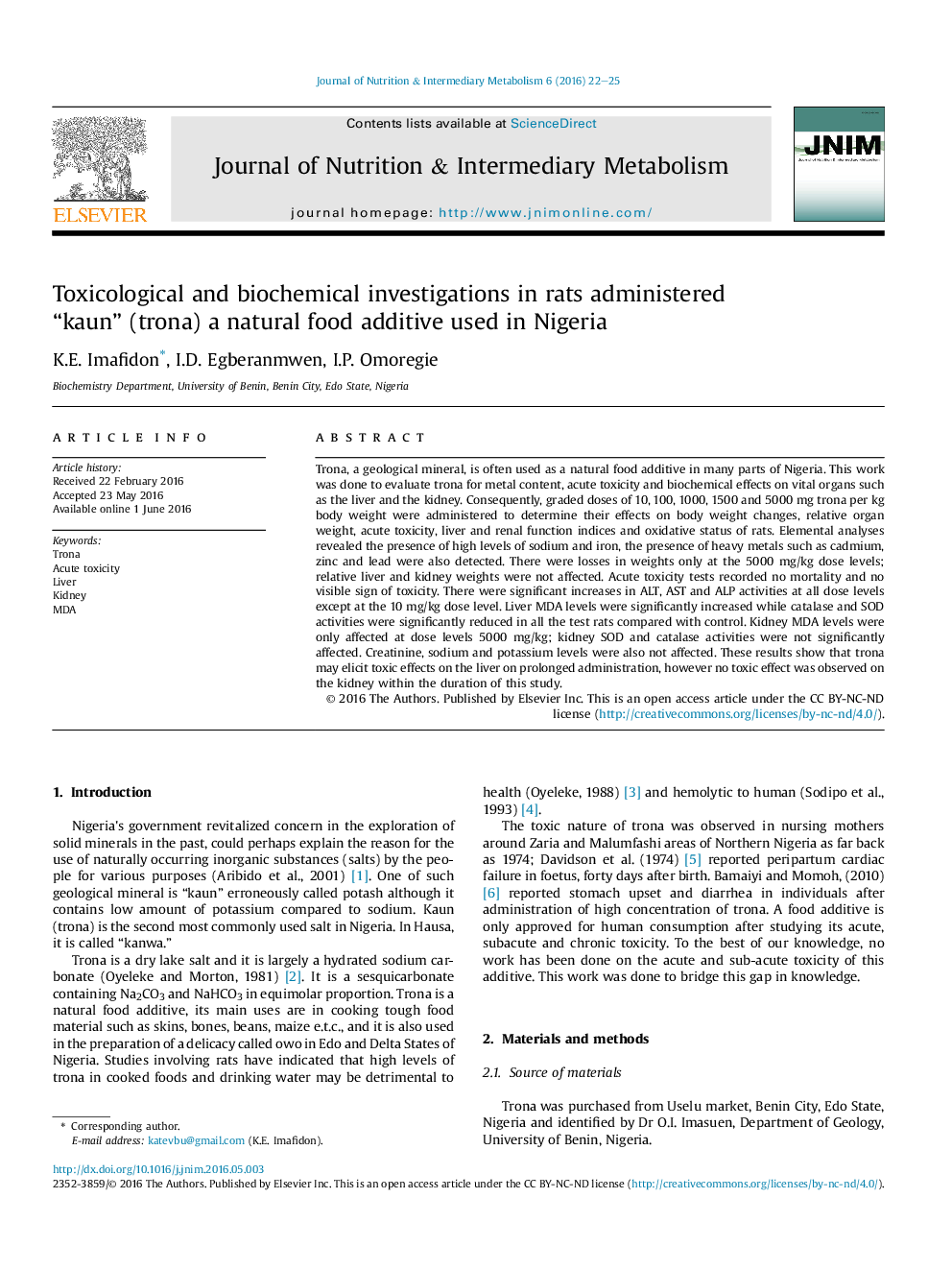| Article ID | Journal | Published Year | Pages | File Type |
|---|---|---|---|---|
| 2688594 | Journal of Nutrition & Intermediary Metabolism | 2016 | 4 Pages |
•High sodium and iron content revealed.•No short term toxicity observed.•Adverse effects on the liver on long term basis.•No toxic effects on kidney.
Trona, a geological mineral, is often used as a natural food additive in many parts of Nigeria. This work was done to evaluate trona for metal content, acute toxicity and biochemical effects on vital organs such as the liver and the kidney. Consequently, graded doses of 10, 100, 1000, 1500 and 5000 mg trona per kg body weight were administered to determine their effects on body weight changes, relative organ weight, acute toxicity, liver and renal function indices and oxidative status of rats. Elemental analyses revealed the presence of high levels of sodium and iron, the presence of heavy metals such as cadmium, zinc and lead were also detected. There were losses in weights only at the 5000 mg/kg dose levels; relative liver and kidney weights were not affected. Acute toxicity tests recorded no mortality and no visible sign of toxicity. There were significant increases in ALT, AST and ALP activities at all dose levels except at the 10 mg/kg dose level. Liver MDA levels were significantly increased while catalase and SOD activities were significantly reduced in all the test rats compared with control. Kidney MDA levels were only affected at dose levels 5000 mg/kg; kidney SOD and catalase activities were not significantly affected. Creatinine, sodium and potassium levels were also not affected. These results show that trona may elicit toxic effects on the liver on prolonged administration, however no toxic effect was observed on the kidney within the duration of this study.
